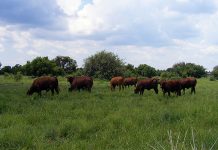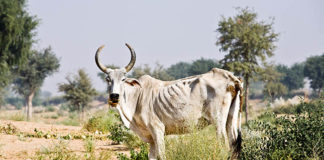
“We will be the first country in the world to introduce a real CO2 tax on agriculture. Other countries will be inspired by this,” taxation minister Jeppe Bruus of the centre-left Social Democrats said in a statement on 25 June.
Cattle farmers in Denmark would be charged almost €100 (about R1 977) a year for the greenhouse gas emissions from each head of cattle, Reuters reported.
READ Study sheds light on global risk of heat stress to cattle
Experts commissioned by the government first proposed the tax in February, in an attempt to help that country reach a legally binding 2030 target of cutting greenhouse gas emissions by 70% from 1990 levels.
While the agreement still has to be approved by the Danish parliament, political experts expected a bill to be passed soon.
According to the proposed agreement, farmers would be taxed 300 Danish krone (about R795) per ton of CO2 in 2030, increasing to 750 krone (R1 988) by 2035.
However, Reuters reported that farmers would be entitled to an income tax deduction of 60% on this amount, which meant that the actual cost per ton would be around 120 krone (R318), and increase to 300 krone (R795) by 2035.
READ Lessons from Danish researchers and farmers
Subsidies would be available for any adjustments that needed to be made to farming operations, the report said.
According to the minister for economic affairs, Stephanie Lose, the tax could add an extra cost of 2 krone/kg (R5,30/kg) to minced beef when introduced in 2030. She told public broadcaster DR that minced beef currently retailed at about 70 krone/kg (R186/kg) in Danish discount stores.
The L&F agriculture industry group told Reuters: “Although farmers in Denmark had previously expressed concern that the country’s climate goals could force them to lower production and cut jobs, they said the compromise made it possible to maintain their businesses. The agreement brings clarity when it comes to significant parts of the farmers’ conditions.”
Following pushback from farmers, the New Zealand government abolished plans to introduce a similar tax earlier this year, Reuters said.











